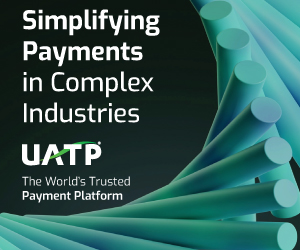There are several ways for employees to diversify roles in their organizations and take on responsibilities beyond their traditional scope. The latest Business Travel Executive Town Hall conducted via LinkedIn featured an in-depth conversation with three travel and procurement professionals who have expanded their expertise across multiple business functions.
Nicki Leeds, director of global travel, corporate card and meetings programs at Hewlett Packard Enterprise, Doug Weeks, managing director at investment firm Ares Management, and Anna Price, assistant director of indirect procurement at accounting and consulting firm Crowe, discussed their career trajectories and how the skills they developed in travel management can be catalysts for a broader enterprise impact.
The career paths of all three Town Hall panelists demonstrate how advancement requires versatility and the courage to step outside comfort zones. Each used the knowhow they gained in managing travel – including collaboration, data analysis, supplier relationship management and cross-department coordination – as a starting point. From there, they developed the additional skills they needed to undertake their new roles.
Nicki Leeds managed travel for 10 years at Hess and eight years at PwC. Currently, at Hewlett Packard Enterprise, she serves as the director of global travel, card and meetings programs. But she does a lot more than that.
Leeds started attending events held by HPE’s finance and strategy organization, “and I would see opportunities where we might be able to do something different,” she said. Her enthusiasm earned her the position of finance and strategy site leader, responsible for driving face-to-face engagement among team members, leading training initiatives and organizing employee events.
The role is time-consuming and challenging, but “I knew this was also visibility,” she said. “This is going to put me in front of people who may not know me otherwise. Being new to a company, that’s really valuable.”
Leeds was initially drawn to her job partly because of a leadership element. “When I joined HPE, I had a team and quickly realized that was a muscle that was partially developed for me, and I had a lot of learning to do,” she said. “One of the hardest things as a leader is having a tough conversation if that doesn’t come naturally to you.” Leeds role-plays with colleagues to prepare.
Changing Lanes
New leadership responsibilities were also part of Doug Weeks’ career progression. Currently managing director at Ares Management, Weeks previously worked for PwC in a sourcing role, managed travel at Booz Allen Hamilton for eight years and, like Leeds, cut his teeth in the industry at a travel agency.
A few years ago, an Ares colleague who was managing an admin program took a long-term absence and Weeks, who was managing travel, was asked to step in.
“Three or four months turned into three or four years,” said Weeks, who now manages around 250 admins. “A lot of travel managers are more or less individual contributor roles. All of a sudden, they are being asked to manage a large team. I had to learn quickly about people and team dynamics, how to lead a team and how to operate a team. It’s about taking risks and believing in yourself.”
“And trust yourself in that process,” said Anna Price, assistant director of indirect procurement at Crowe.
Price emigrated twice – from her native South Africa to New Zealand, and then to the United States – and has worked at airlines, for a hotel company and as a travel manager for multiple companies. “My career mobility hasn’t been linear,” she said. “It’s been kind of forward, sideways, a couple of circles, a little bit of everything.”
During COVID, Price reflected on her previous experiences to identify what she most enjoyed and wanted to do going forward. “That helped me determine the steps I needed to take to pivot from a pure category travel manager into an indirect procurement category manager,” she said. “A building block approach in your career path really helps broaden your scope, take on more responsibility, sharpen your technical skills and strengthen your relationships.”
At Crowe, she’s now responsible for IT, real estate, shared services, travel, meetings, events, and risk management, among other areas.
Common Threads
The three covered several broad themes.
Be bold and make the effort. Take risks and trust yourself. Maintain your confidence while acknowledging that setbacks are inevitable. “Even when things feel bigger than you, scarier to you,” Leeds said. “There have been some moments where I thought, ‘What have I done? I am in way over my head.’ But I asked for help, and typically received the support I needed to keep going.”
“Challenge yourself to go outside of the confines of what you know,” Price added. “Get comfortable with being uncomfortable, because I think that is where you’re going to find the greatest growth moments.”
Volunteer, participate, seek out new networking opportunities and build new relationships. When volunteering for GBTA committees early in her career, Leeds learned that “the effort you put into something is congruent to the reward that you receive from it. Getting involved versus standing on the sidelines.”
Develop skills, especially for collaboration, communication and leadership. Educate yourself, actively listen and continuously learn. “Whether it’s podcasts or audio books or masterclasses, there are so many ways to grow and learn,” Leeds said. “There’s almost no excuse.”
Be adaptive. A leadership role “has been a pivot for me,” Weeks said. “It’s not been as much about getting the work done – of course, it’s about getting the work done – but it’s balancing that with making sure you’re enabling your team to be successful. I need to be a better leader to the team, and that means prioritizing sometimes the team’s needs over my individual needs.”
Learn to leverage artificial intelligence. AI built into Price’s workflow helps her analyze data faster. “It really is helping me work smarter and make decisions with greater precision, and that ultimately helps me negotiate from a stronger position,” she said. “Being extremely versatile in contract negotiation skills and understanding contract language” is something that benefits people “no matter where you go in life.”
Leeds acknowledged the fear of the unknown when it comes to AI. “It’s a little bit like standing on a high dive and looking down. It’s hard to jump off the very first time. Once you’ve done it, success builds on success. Whether it’s finding the time or trying something you don’t know, that’s part of the journey, right?”
Right Place, Right Time
Capitalize on opportunities. Focus on the strategic rather than just tactics. Find mentors and champions within your organization. Know your strengths and lean into them. Recognize when you are in the right place at the right time, but also seek out invigorating paths.
“Look through different lenses and viewpoints of different parts of the business, and there likely will be opportunity for increasing scope or changing roles,” Weeks suggested.
By taking on the admin role, he was able to capitalize in another way. He developed relationships with senior executives across the globe, and “opened the door to have the travel discussions I need to have, which otherwise would be really difficult to get on their calendars. Nobody wants to talk about travel.”
Weeks said he learned a lot from the global CFO, “not just looking at how much the firm is spending on travel, but why and what it means.”
With fivefold increases in employees and assets under management since Weeks joined eight years ago, Ares began “comparing travel costs to headcount growth percentages or assets under management or fee-related earnings, things like that, at the enterprise level,” he said. “What’s the average cost to support each investment professional we have at the firm? We might have a higher admin budget this year, but our average cost to support an investment professional has gone down. It’s opened my eyes to see how the senior-most executives here think about things.”











